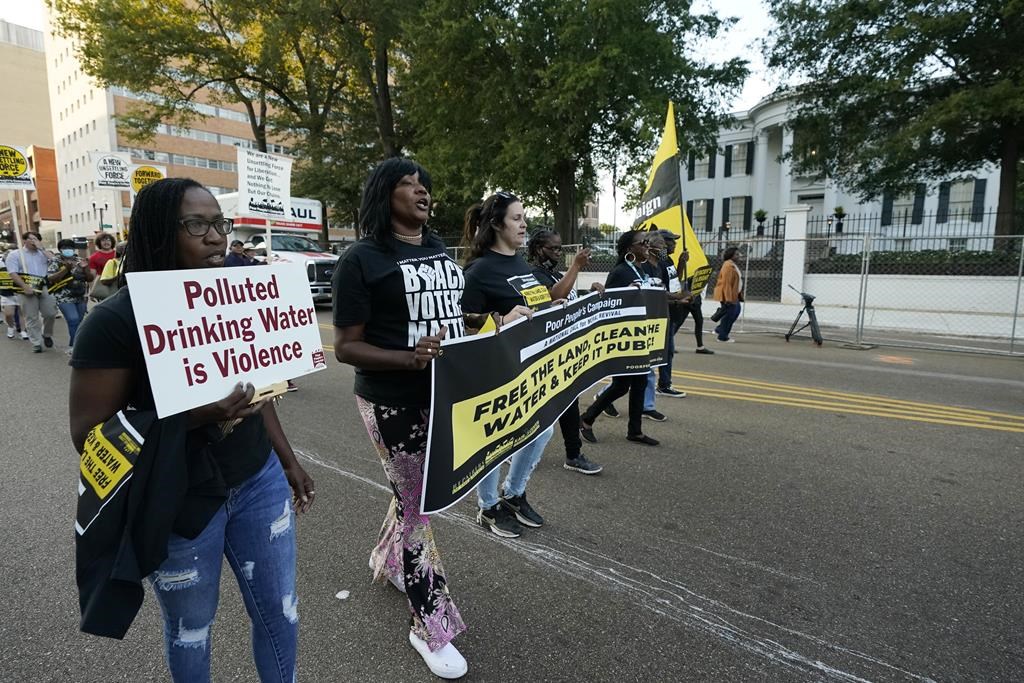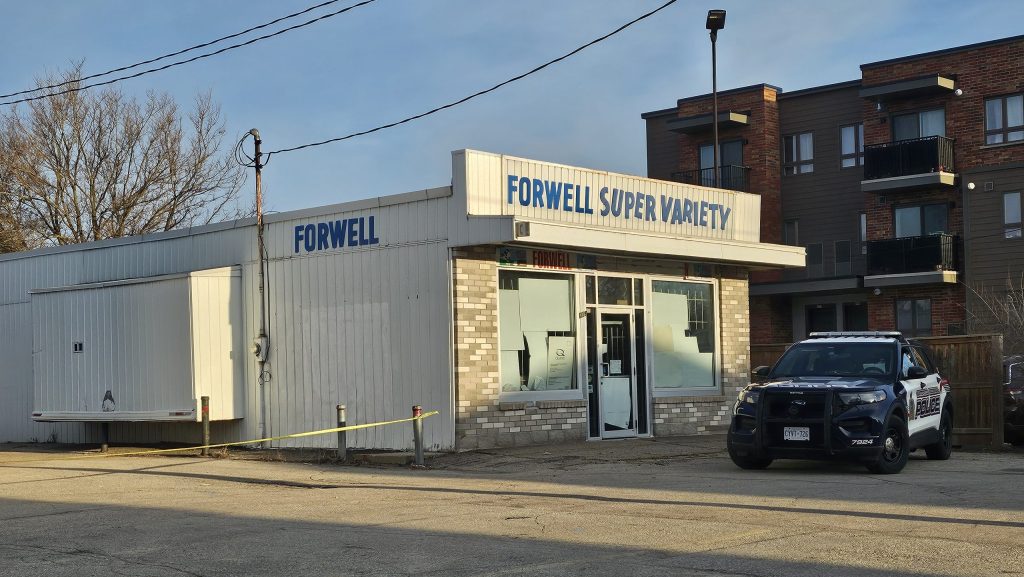Mississippi activists ask to join water lawsuit and criticize Black judge’s comments on race

Posted Sep 27, 2023 06:26:23 PM.
JACKSON, Miss. (AP) — Activists in Mississippi’s majority-Black capital city are trying to join a federal lawsuit against the city for violating standards for clean drinking water, even as they say the Black judge presiding over the case is stirring racial division.
The activists from the Mississippi Poor People’s Campaign and People’s Advocacy Institute filed court papers Wednesday asking to intervene in the federal government’s lawsuit against Jackson. During a news conference Wednesday, activists said they spoke for residents in the 80% Black city who want more say over reforms to the water system.
“We feel like our lives are on the chopping block here in the city of Jackson,” said Danyelle Holmes, an organizer with the Mississippi Poor People’s Campaign. “We could no longer sit by idly as government agencies allow residents to be told that it’s OK to drink unclean water.”
The federal government has taken legal steps to scrutinize Jackson’s water quality for over a decade. But in November, the Justice Department accelerated its involvement after breakdowns in Jackson caused many in the city of about 150,000 residents to go days and weeks without safe running water. Last August and September, people waited in lines for water to drink, bathe, flush toilets and cook.
U.S. District Judge Henry Wingate appointed Ted Henifin, who had decades of experience running water systems in other states, to help fix Jackson’s long-troubled water system. Henifin began working on several projects to improve the water infrastructure, such as repairing broken water lines and a plan to improve the city’s ability to collect water bills.
Henifin said in June that he was not aware of any health risk in drinking Jackson water. In a statement to The Associated Press on Wednesday, Henifin said his team “is committed to public education that focuses on the people of Jackson and helping them understand what is happening with their water and the engineering science, not through the interpretive lens of activists, special interests or agendas.”
“We have been completely open and transparent with our water quality testing data and are in compliance with the Safe Drinking Water Act,” Henifin said.
He also pointed to water quality reports and the Mississippi Department of Health water testing data that are available online.
At a multi-day federal court hearing in July, activists said they had received mixed messages about whether Jackson’s water was safe to drink. Some residents reported discolored water flowing from their pipes even after public health orders were lifted. Activists also said they were being kept in the dark about the status of reforms.
After Congress awarded Jackson $600 million for water repairs, some city leaders and activists also said they wanted Henifin to look for minority-owned firms when awarding contracts for infrastructure projects.
Henifin, who is white, said he had been transparent about the quality of Jackson’s water and his work as the interim manager. He also mentioned plans to launch a minority contracting program that would employ Black-owned firms whenever possible, WLBT-TV reported.
In a July 21 ruling, Wingate, who is Black, said many of the concerns raised by the Black activists were without merit.
“They have no experience in water management, and no logical rationale why an African American would be better suited to fix a lingering problem which has gone unsolved for decades by past African American leadership,” Wingate wrote.
During Wednesday’s news conference, activists lambasted the judge for his comments.
“When the judge made his statement that we just want someone Black to fix our water, that is very disingenuous. That’s a disgrace,” Holmes said. “You have a judge who is pitting Black against white, poor against the wealthy, and it’s totally unfair. Whether you’re Black, white or brown, we’re all consuming the same water unless you’re wealthy and have purchased a filtration system, which many of the residents who are predominantly Black cannot afford.”
Brooke Floyd, co-director of the Jackson People’s Assembly, said even those without expertise in water management should be able to voice concerns.
“I think it’s just unconscionable that it was even brought up,” Floyd said. “The race stuff was ridiculous, and it’s also ridiculous to say that because we are upset our water is not safe to drink, that we should just go sit down and be quiet and take what is given to us.”
If they are allowed to join the federal lawsuit, Jackson community groups would have an “institutionalized role in settlement negotiations,” the activists said. They are asking for the installation of water filters in homes, more open meetings convened by the Environmental Protection Agency and a range of other demands.
Henifin had hoped to complete his work as Jackson’s interim water manager in one year or less. Rukia Lumumba, executive director of the People’s Advocacy Institute and sister of Jackson Mayor Chokwe Antar Lumumba, said she wants the city to work cordially with Henifin while he is still in Jackson.
“As it relates to long-term, we want to see someone in Jackson that lives here,” Rukia Lumumba said. “We want to see the city have the resources to fully operate the water system itself where we don’t have to have another third-party operator.”
___
Michael Goldberg is a corps member for the Associated Press/Report for America Statehouse News Initiative. Report for America is a nonprofit national service program that places journalists in local newsrooms to report on undercovered issues. Follow him at @mikergoldberg.
Michael Goldberg And Emily Wagster Pettus, The Associated Press








